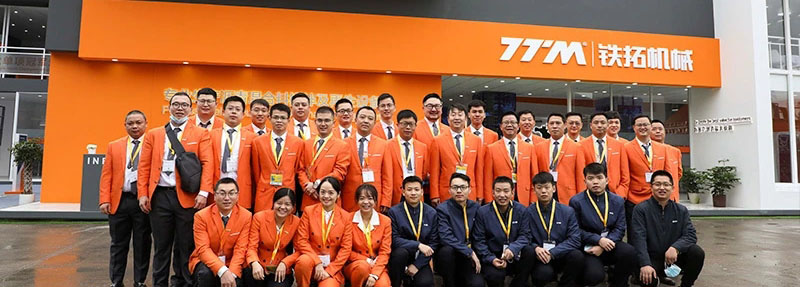Why Time-Critical Projects Rely on Specialized Asphalt Plant Construction
Road-building schedules are shrinking, budgets are tightening, and public patience is thinner than ever. If you have ever wondered why some state departments of transport finish a highway interchange months ahead of schedule while others languish in change-order purgatory, the answer often hides inside one phrase: asphalt plant construction service. The right partner does not just erect steel and wire; they choreograph logistics, permitting, and testing so that the first truck of hot mix rolls out exactly when the paving crew shows up.
What Exactly Counts as an Asphalt Plant Construction Service?
Google the term and you will see everything from mom-and-pop welders to billion-dollar conglomerates claiming they “do asphalt plants.” In the real world, a genuine service package covers:
- Site civil work and soil stabilization
- Process flow design to match your local aggregate specs
- Supply-chain mapping for burners, baghouses, conveyors, and silos
- Erection, calibration, and environmental compliance testing
- Operator training, maintenance contracts, and future retrofits
Ignore any bidder that cannot hand you a written schedule for every bullet on that list. Period.
How Early Should You Bring in the Builder?
Here is where a lot of project owners goof up. They finalize road alignments, sign earthwork contracts, and only then start shopping for an asphalt plant construction service. By that point, the best crews are booked six months out, and you are stuck with whoever is still available. Flip the script: engage the plant builder during the feasibility study. When the builder reviews your traffic forecasts, they may suggest a 30 % bigger silo so you can avoid Sunday night overtime shifts later. Little tweaks like that compound into weeks of saved schedule.
The Hidden Cash Drain: Utility and Environmental Surprises
You budgeted for concrete pads and steel columns; Mother Nature budgets for wetlands and endangered orchids. Experienced contractors pre-map underground water lines, gas mains, and fiber-optic backbones before the first backhoe shows up. They also file air-quality permits months in advance so that the plant’s stack test coincides with the end of construction, not with the beginning of paving season. Skipping this homework can knock your ROI into next fiscal year—ugly.
Modular vs. Stick-Built: Which Route Saves More Days?
Modular plants ship in containers that bolt together like adult Legos. A 250 tph drum mix unit can go from flat ground to first burn in 14 days if the foundation is already cured. Stick-built designs take longer, but they let you squeeze into odd-shaped quarries where a crane cannot reach. Ask your asphalt plant construction service to model both scenarios in 4D BIM; you will spot bottlenecks that Gantt charts never show.
Quality Control During Eection—Yes, the Typo is Intentional
Steel tolerances are measured in millimetres, yet some crews still eyeball it and “correct later.” That attitude is why trunnions misalign, drums wobble, and you end up chasing mix segregation for three seasons. Insist on laser surveying at every bolt-up stage and keep an independent testing lab on speed dial. It sounds nerdy, but it keeps the plant from turning into a very expensive vibration machine.
How to Compare Turnkey Bids Apples-to-Apples
Line-item quotes vary wildly. One vendor bundles baghouse cartridges; another lists them as an optional extra. Build a matrix that scores:
- Total installed cost (TIC)
- Guaranteed production rate at specified moisture
- Scheduled uptime after FAT (factory acceptance test)
- Spare parts package for the first 2 000 hours
- Training hours and language of instruction
Assign weights that mirror your biggest risk. If cashflow is king, TIC gets 40 %. If you are paving for an airport job where shutdowns cost $100 k per hour, uptime gets the lion’s share.
Post-Construction Support: the 24/7 Hotline That Actually Picks Up
Stuff breaks at 2 a.m. on the coldest night of the year—Murphy wrote that law specifically for asphalt plants. The difference between a two-hour outage and a two-day nightmare is whether your asphalt plant construction service answers the phone with a human who can dispatch a VFD or burner tech from a depot within 150 km. Ask for a service-level agreement that fines the contractor for every hour past promised response time. Money talks louder than polite email apologies.
Can You Retrofit an Old Plant Instead of Building New?
Sometimes. If your existing dryer shell is still round and trunnion pads show less than 3 mm wear, a retrofit can boost RAP percentage from 15 % to 40 % with a new baghouse and blue smoke capture. But if the tower steel dates back to the disco era, the cost of bringing it up to seismic code rivals new construction. A reputable service runs finite element analysis on the steel before they cash your deposit.
Key Takeaway: Treat the Plant as a Long-Term Asset, Not a One-Off Purchase
The lowest bid often ignores insulation thickness, future recycle ring locations, or variable frequency drives that could trim power bills by six figures over a decade. Zoom out. Calculate life-cycle cost and you will find that paying 8 % more upfront for an energy-efficient burner saves enough diesel in three seasons to fund an entire shuttle buggy.

